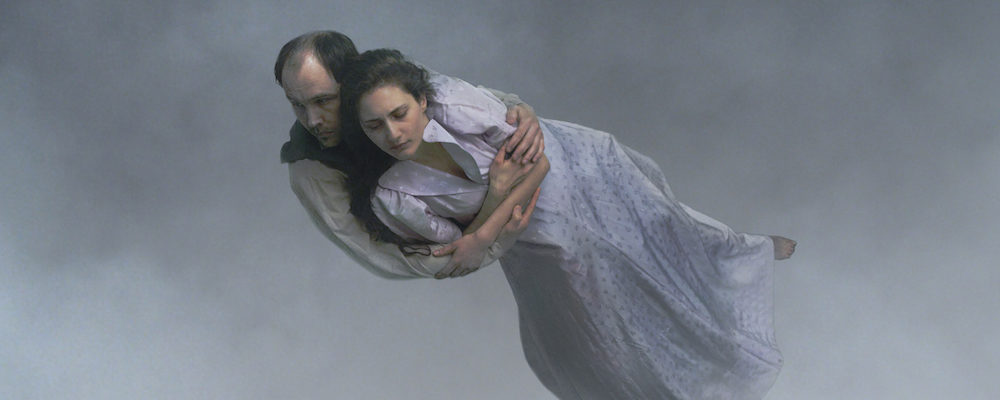In Roy Andersson’s ‘About Endlessness,’ the Details of Everyday Life Become Dreamlike Stories
Alci Rengifo
“About Endlessness” defies categorization. It is not a drama or a documentary, yet it is a narrative. Swedish director Roy Andersson has made a meditation on the very rhythms of everyday life. We wake up, we go to work, we interact with others, but rarely do we stop to consider how it’s all part of a grander, moving world. For every major historical event there are intimate moments taking place inside someone’s home. For every moment of joy there is some immense tragedy playing somewhere else. Andersson does not stage short stories in this film, but moments like bursts of life.
A female narrator begins each little section with “I see…,” and the camera then stays still as a moment plays out. A man may walk up the stairs of a train station and look at the city around him, a woman will water a plant while a young man who has never experienced love walks down the street, gazing at the plant. Moments like these weave together into an almost hypnotic trance evoked by Andersson’s meticulous construction of the images. Cinematographer Gergely Pálos films each moment with a particular drain of color that makes everything baroque, and the skies outside seem eternally overcast, which give the sense of an enclosed world. Every town, every city has its own personal histories going on all the time. A priest dreams he is reliving Christ’s passion while two parents quietly, almost casually visit the grave of their dead son.
There is a cinema that tends to be found in the work of international directors that could care less for “commercialism,” and instead uses sparse resources to reach realms of poetry or reflection. American directors are also capable of wonderful experimentation, but how often we get a work that is literally just about moments? Andersson is chasing after a plot, for him there is a plot in every action or decision we embark on. A priest with a crisis of faith is no less dramatic than an irate husband who slaps his wife in a butcher shop. There is a moment where the priest is preparing for mass in a room as congregants wait outside, and all we need to know occurs when he takes a swig of the communion wine, making sure to stay out of sight. Individuals go about routines, while enduring inner torments. Others face grimmer realities head-on, like the soldiers who are lined up for execution in an unknown war.
Once in a while Andersson will briefly turn away from the mundane to the wider scope of history. A woman may be alone in a train station in one scene, and then we see Hitler wandering in his bunker, as other SS officials look beaten and worn out. There is a brilliant poetry to how these images all flow together, or when they take on a surreal intensity like a couple flying over a bombed out World War II city. What Andersson is saying without much dialogue is that all lives count as experiences. Not everyone becomes a historical figure, but even the faces in a textbook carried out the smaller tasks that define existence. A father ties his daughter’s shoe on a rainy day and it is as meaningful as a parade of war prisoners making their way through a Siberian landscape. Subtle and dark humor even comes across when a dentist gets annoyed with a fidgety patient and walks away. “He’s having a bad day,” the nurse tells the patient in the chair. We’ve all had those.
On a more minute scale, Andersson’s approach here is similar to that of directors like Terrence Malick, who want their camera to reach beyond the limits of a script. But if Malick is a romantic, Andersson is truly an observer. The camera never moves, even when a man is holding the daughter he just stabbed in an honor killing. That is a tragedy of catastrophic proportions, even if it is confined to a living room. Think about the apartment or neighborhood where you live, and all that is happening around you even if one scarcely stops to notice in a world now emerging from the pandemic, where we all begin to go full-speed ahead. Andersson finished his film in 2019, when it began making the festival rounds. But in a way it is more apt for now, as a year of stillness has forced us to look closer at life itself. Even as we consume stories on a screen, we are also creating our own miniature narratives every moment we are alive.
“About Endlessness” releases April 30 on VOD and in select theaters.

